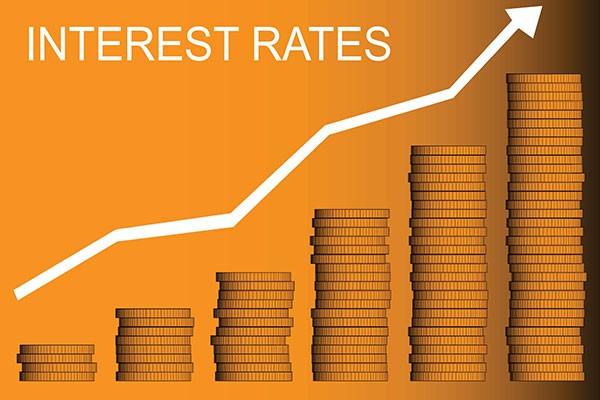Rising Interest Rates Biggest Risk To Housing Market According To Consumers
Keep up-to-date with all the latest property news & updates.

There are lots of distinct factors that influence the housing market, but rising interest rates currently represent one of the biggest risks to the housing market, according to consumers. So, what are the other factors in play, and why are rising interest rates the most threatening variable?
Economic growth
Income levels partly determine the demand for the housing market. When we see an increase in economic growth and a spike in average income, there's more room for people to spend more on properties. Demand increases as a result, and prices get pushed up in accordance with this demand.
Unemployment
When there are higher levels of unemployment, fewer people can afford to buy a property. In addition, even just being aware of the threat of unemployment puts people off buying houses.
Availability of mortgages
When it's easier to get a mortgage, larger chunks of the population are able to buy, and the demand for properties increases. Ever since the credit crunch, however, there's difficulty raising the amount of money needed for lending, so lending criteria have become stricter and more comprehensive (leading to a fall in demand).
Interest rates
Fluctuations in interest rates have an impact on how much you can expect the average monthly mortgage payment to be. Sustained periods of high interest rates push up the cost of mortgages and cause a dip in the demand for properties. Meanwhile, high interest rates make renting look like a more favourable option than buying. Interest rates have a massive impact if people have mortgages that are both large and variable. Ultimately, when homeowners can't afford the expense of heightened interest rates, UK house prices plummet.
Buyer confidence
People only take the risk of investing in a mortgage if they're confident in the housing market. If there are widespread worries about house prices falling, buying gets put off and potential homeowners choose rental properties instead.
Supply
Finally, when supply is short we see prices steadily increasing. Meanwhile, a good supply or supply that is surplus to requirements leads to falling prices. Housing supply is determined both by what is already available and by new house builds. There isn't usually many variations in supply because it takes time to construct new properties. So, even when there's a period of increased house prices, there isn't always a concurrent spike in supply because of the limited lag and the need to secure planning permission.

